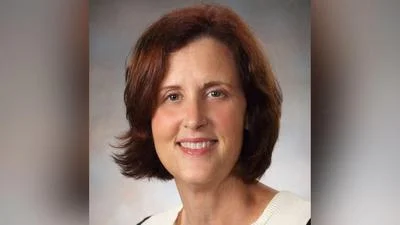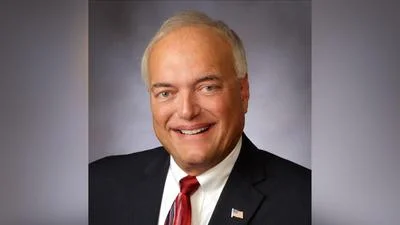Many people have seen technology change how they do their jobs, but for surgeons, the changes have been profound.
The advent of minimally invasive surgery, either laparoscopic or robotic, can whittle the recovery time for some procedures from weeks to days.
Dr. Casey Babbitt, a general surgeon at Knox Community Hospital, is a specialist in robotic surgery, but don't let the name fool you. Even though she uses robotic arms to perform the delicate maneuvers of surgery, it is she who is still in control, guiding the procedure, rather than a machine.
"The robot allows a very elegant surgery," she told the Mount Vernon News. "It gives me the ability to have wrist-like movements in the abdomen and getting to hard to reach places that would be more difficult with open surgery."
Prior to the advent of minimally invasive/robotic surgery, most procedures were open surgery, involving large incisions into the body. Open procedures prolong healing time and carry a slightly elevated risk of infection. In contrast, robotic surgery can be performed with small incisions through which the robotic arms can complete procedures.
The cost for advanced surgeries using robotic techniques is typically covered by insurance.
“It is definitely accepted by insurance nowadays,” the physician said. “Insurance companies have realized how much better patients do by experience compared to open, so they have jumped right on board with us.”
The surgical procedures Babbitt and other general surgeons perform include gallbladder removal, repair of hernias, and breast and colon cancer.
"We can do these very complex surgeries with minimal pain for the patient," she said.
“Another type of general surgery (not robotic) at KCH is what we call ‘endoscopy’,” Babbitt said. “This includes colonoscopies or the upper scopes as well.” This type of procedure allows surgeons to look inside the body for diagnostic purposes and is useful for colorectal cancer screening and treatment.
For the hiatal hernias Babbitt treats, the warning signs can be as simple as acid reflux (heartburn) that doesn’t respond to antacids. But for colorectal cancer, the warnings are more ominous: unintentional weight loss, bloody stools and cramps or abdominal discomfort.
“But the vast majority of the time patients with colon cancer are asymptomatic,” she said.
Dr. Babbitt recommends regular screening and avoiding certain behaviors.
“Smoking increases your cancer risk across all organs, not just the colon,” she said. “If I could give any advice, it’s to stop smoking.”
Colonoscopies are recommended to screen out colon cancer starting at age 45, but some colorectal cancers are hereditary. In those cases, Babbitt tells patients who have a family history to start screenings a decade earlier than the age their family member was diagnosed (whichever comes first – this or age 45). The same timeline is advised for breast cancer.
Babbitt earned her bachelor’s degree in biochemistry at Miami University and completed her medical degree and residency at Wright State University, where she also received special training in robotic procedures. There she combined her interest in anatomy and hands-on patient care.
“What keeps me in medicine is just the personal aspect of it,” Babbitt said. “I really get to know my patients and I make a point to spend time with each patient getting to know them beyond just their illness. It's a really special bond that you create with your patients; especially after operating on them as well.”







